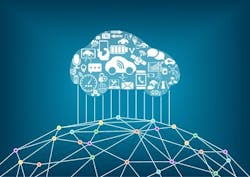CONNECTED VEHICLES: Energy Department gives SwRI funding for connected-vehicle development
The U.S. Department of Energy (U.S. DOE) will give San Antonio-based Southwest Research Institute (SwRI) $2.9 million to create new uses for wireless technologies used in connected and driverless cars.
SwRI has been developing fuel efficiency technologies for a long time, and it thinks it can reduce energy and fuel use by 20% by creating the algorithms and software that will change how the networked car of the future interacts.
For instance, instead of a driver jamming on the brakes to quickly stop at a red light, the car will know before a human when that light is about to turn red. The car will brake, change its route, or adjust its speed.
SwRI's Scott Hotz says the big savings will come from a car knowing what is happening 150 cars ahead.
He says the funding will allow SwRI to build the algorithms and test them over the course of the three-year project. The project is paid for by U.S. DOE but is part of the Advanced Research Projects Agency's (ARPA-E) Next-Generation Technologies for Connected and Autonomous On-Road Vehicles (NEXTCAR) program.
SwRI will demonstrate the technology on the Toyota Prius hybrid. Toyota North America and the University of Michigan are partners on the project.
